Greenland
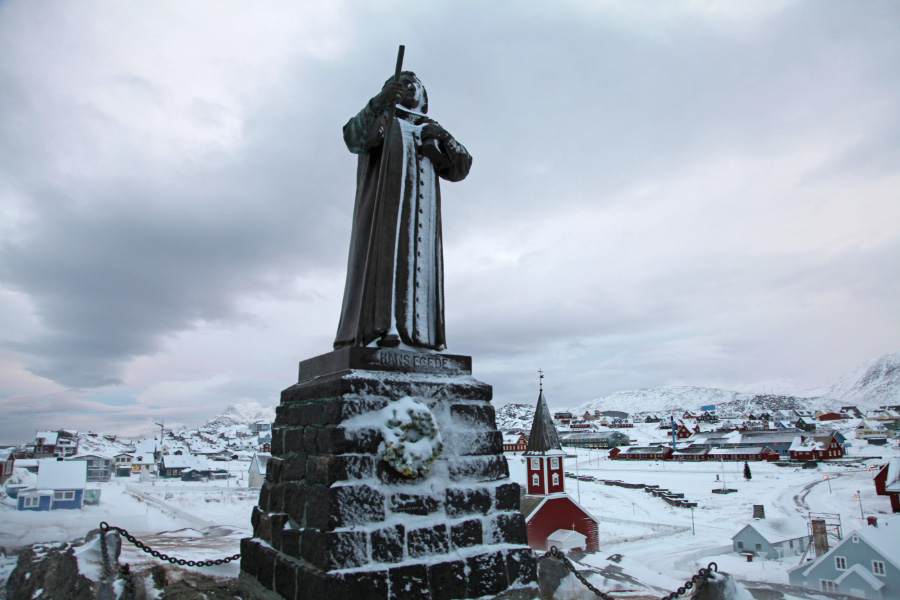 |
|
|
— Grønlands Apostel – Hans Poulsen Egede (1686 - 1758) —
Could the Lutheran Patron Saint (is that oxymoronic?) of Greenland, an extraordinarily tenacious and heroic Christian evangelizer,
have possibly envisioned the day when his successor as leader of the "Christian" community in Greenland would be an unmarried woman,
gay "marrige" advocate and enthusiast? More likely, like his spiritual forebear Martin Luther himself, Rev. Egede missed much. |
|
|
| |
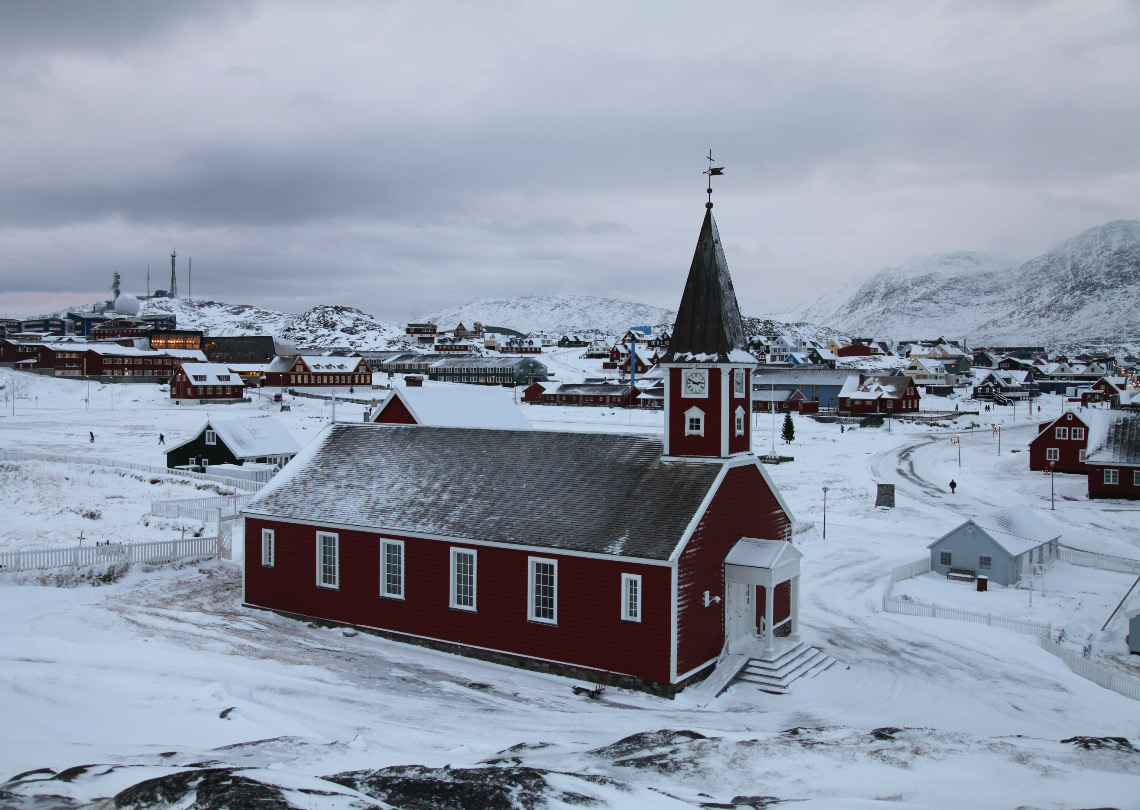 |
|
| |
Annaassisitta Oqaluffia – the Cathedral of Our Saviour, of 1848-1849 construction, would make a fine
Orthodox-Catholic Church. God knows what is being preached there now, and being called Christianity. |
|
| |
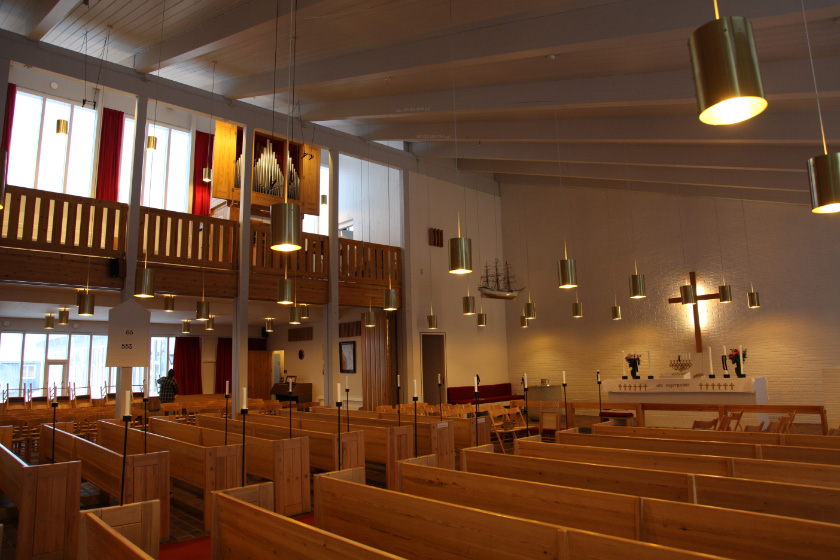 |
|
| |
interior of Hans Egede Church |
|
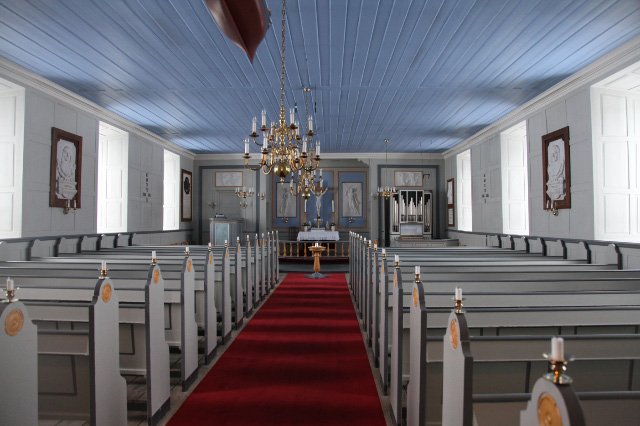 |
|
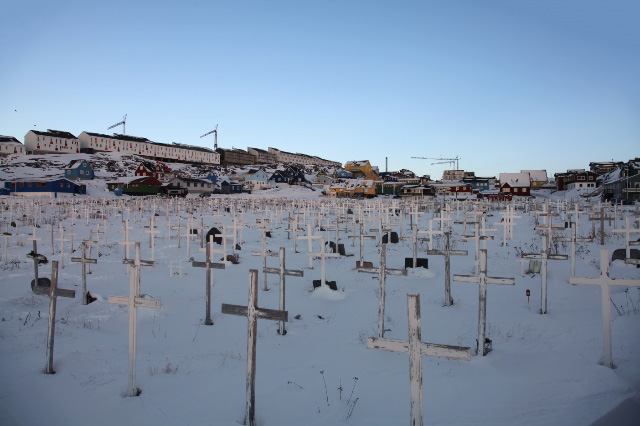 |
| ... and within the Cathedral of Our Saviour. |
|
|
|
|
|
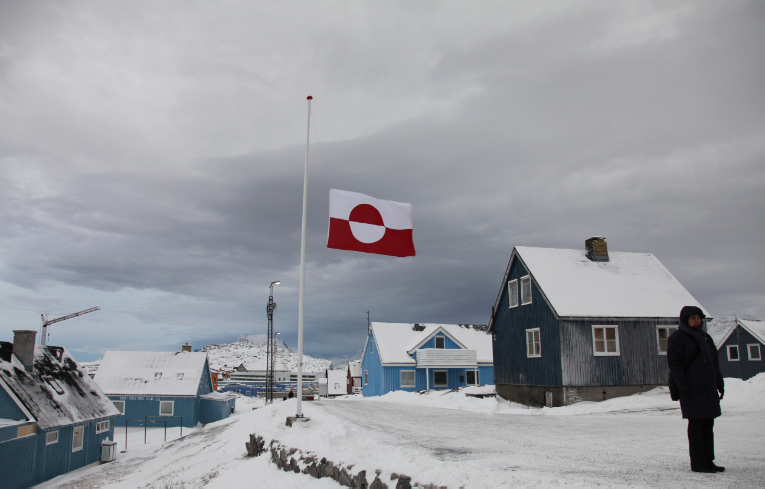 |
|
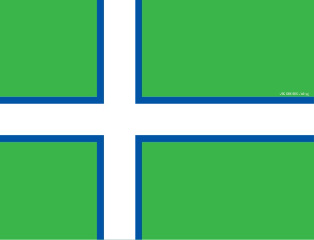
|
Tempting as it is to criticize Thue Christiansen's ugly effort ( red to represent the ocean ?!? ), can one really conclude that the
choices in most countries of Christendom, two or three horizontal or vertical bands of color, are any less creative, any more banal?
Still, for Greenlanders there was, and is, such an obvious and beautiful and, dare one say in this day and age, holy alternative, in form
of the white and blue Nordic Cross on a green field. Well, at least they did not choose the Muslim Crescent ... or the five-star
design of communist China, at least not yet. And flags of nations can be changed. Let's get to work. |
|
|
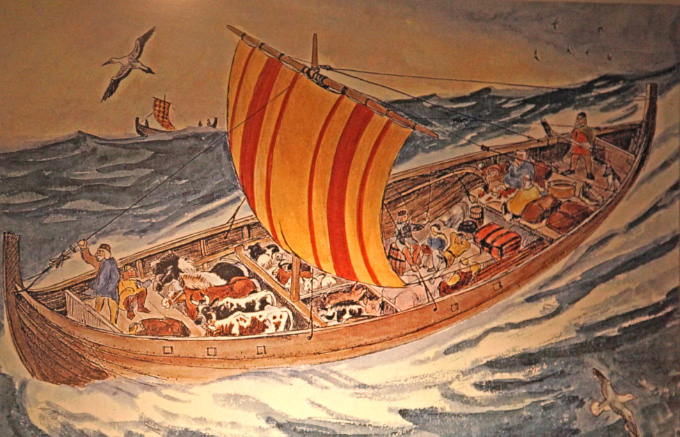
In the 9th century from Norway via the Shetland Islands, Orkney Islands, Hebrides, the Faroe Islands,
and Iceland, the latter already well settled by the end of the 9th century, then onward to Greenland.
On the open arctic seas in 9th and 10 centuries with such craft so laden ... not for the faint of heart. |
|
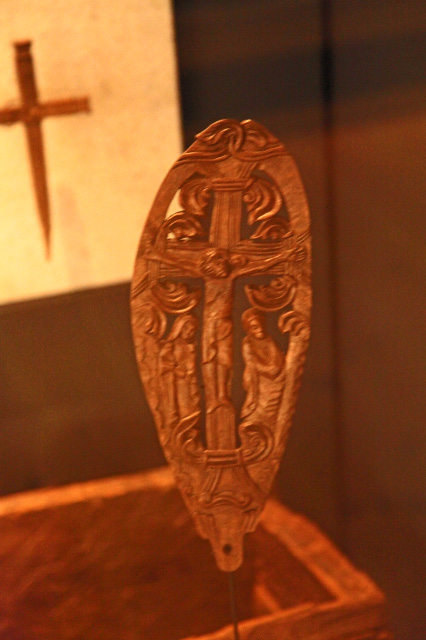 |
| |
|
|
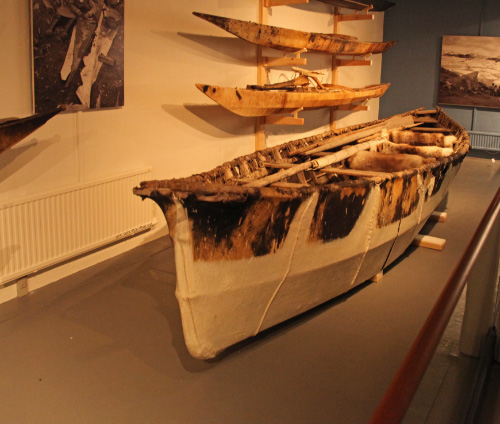 |
|
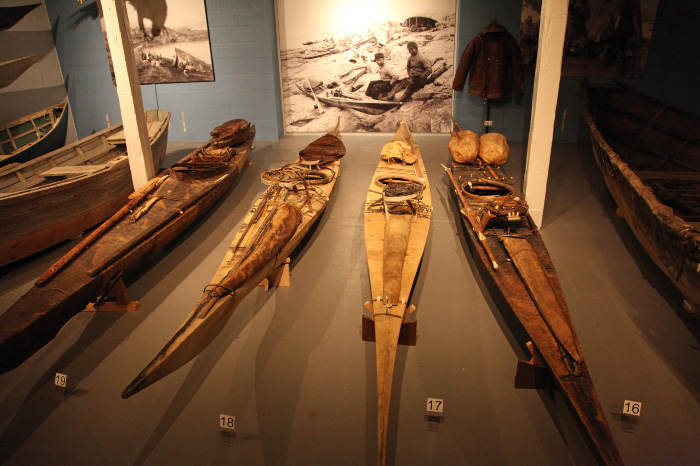 |
| |
|
... and the Greenlandic kayak of an earlier time. |
| |
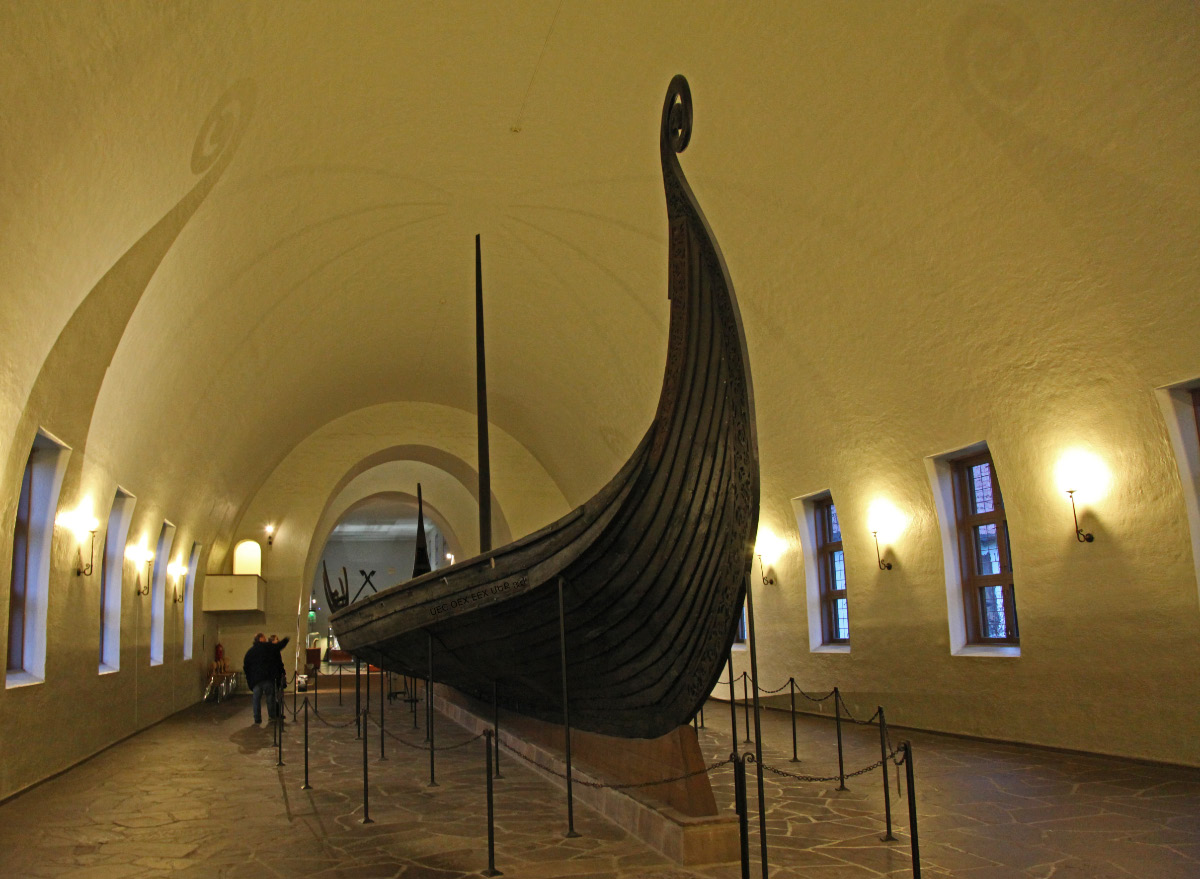 |
|
| |
— Osebergskipet – Oseberg Ship — a clinkerbuilt ship, the oldest extant known, constructed of iron-riveted oak planks, it is 21.5 m long and 5 m broad, with a mast of c. 9–10 m.
Propelled by a 90 m² sail or by as many as 30 oarsmen, the Osebergskipet ship has been dated to 820 Anno Domini, though thought by some to be still older, her second life
was as a interment ship, a large coffin, having been buried in the Oseberghaugen ved Slagen in the year 834. She now rests in the Vikingskipshuset på Bygdøy in Oslo.
Later and better designed ships would have carried Eiríkr hinn rauði – Eiríkr Þorvaldsson – Erik Thorvaldssonthe, better known as Eric the Red (* c. 950 - 1003†) to Greenland,
and his son, Leifr Eiríksson – Leifur Eiríksson – Leiv Eiriksson – Leif Erikson (* c. 970, probably in Iceland – c. 1020, probably in Greenland †), still further west in North America. |
|
| |
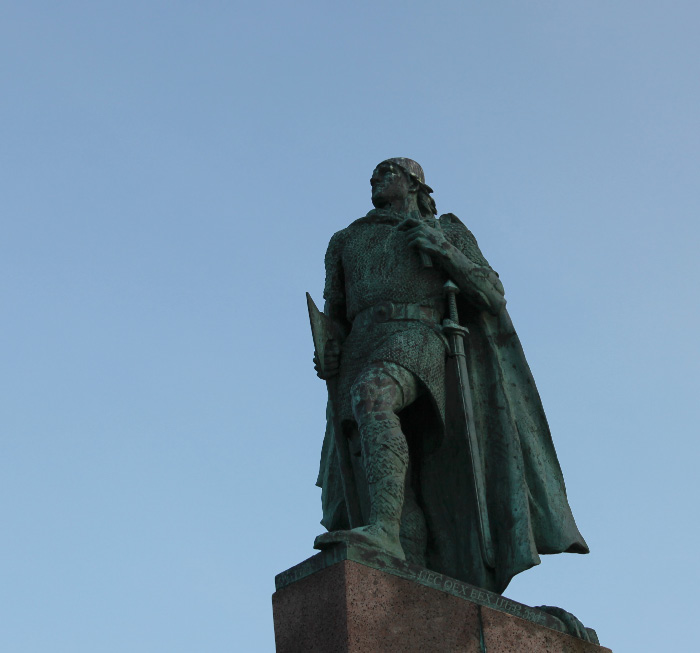 |
| |
|
— the Old Evangelization —
Leifr Eiríksson sculpture by A.S. Calder with Cross
and in chainmail with sword and battleaxe, Reykjavík. |
| |
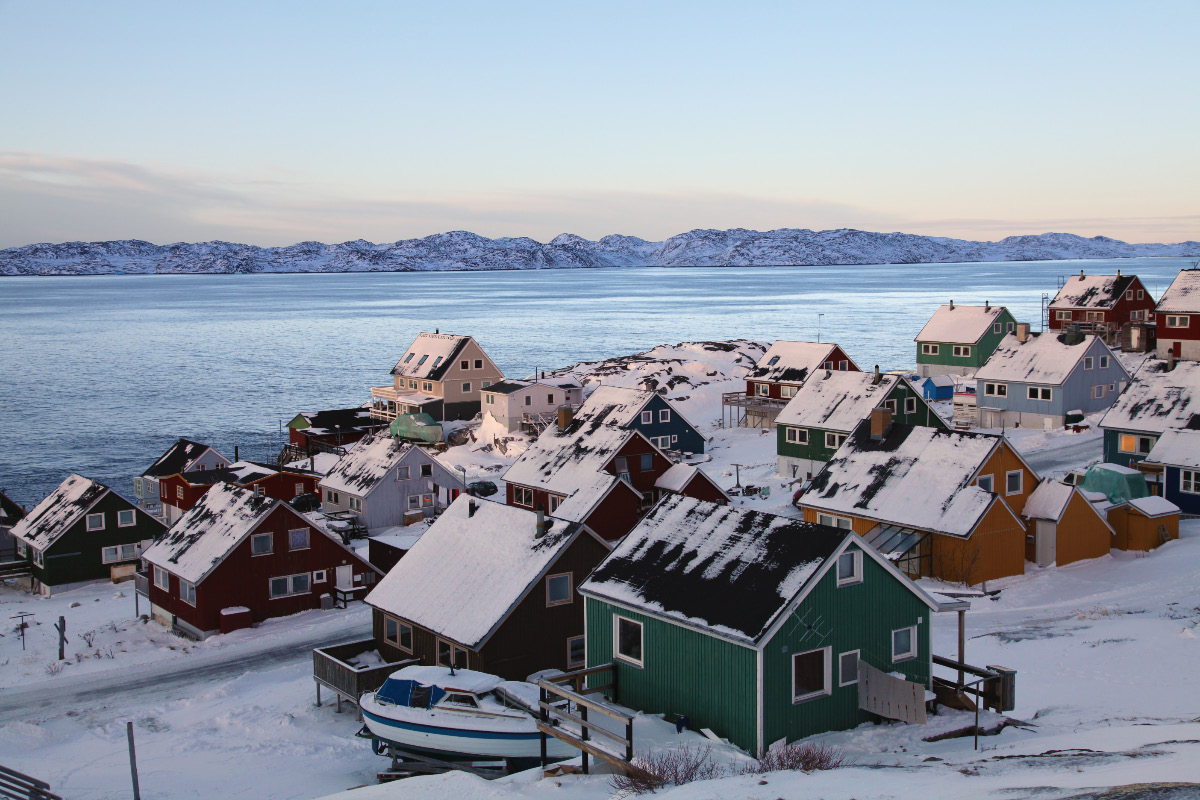 |
|
| |
wooden houses of Godthåb |
|
| |
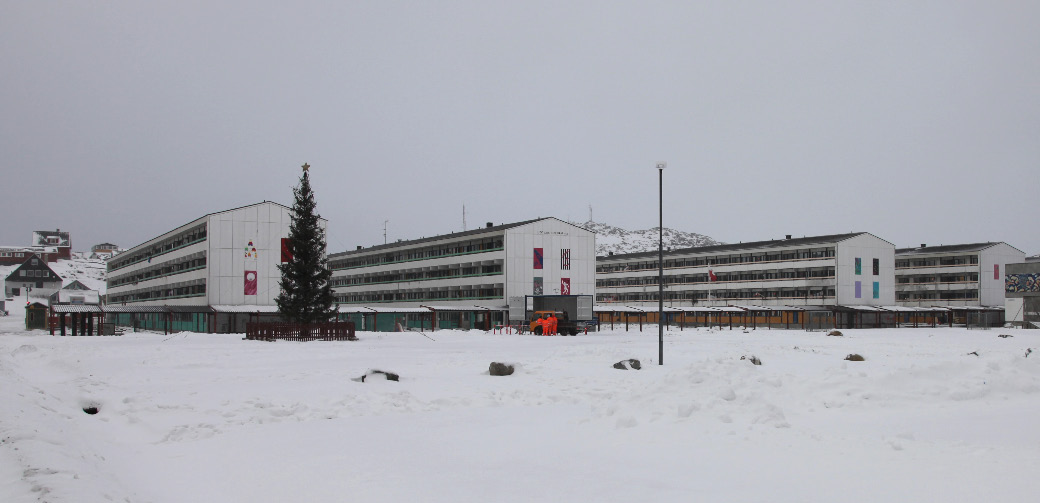 |
|
| |
... but also the expanses of tenement housing blocks of Nuut |
|
| |
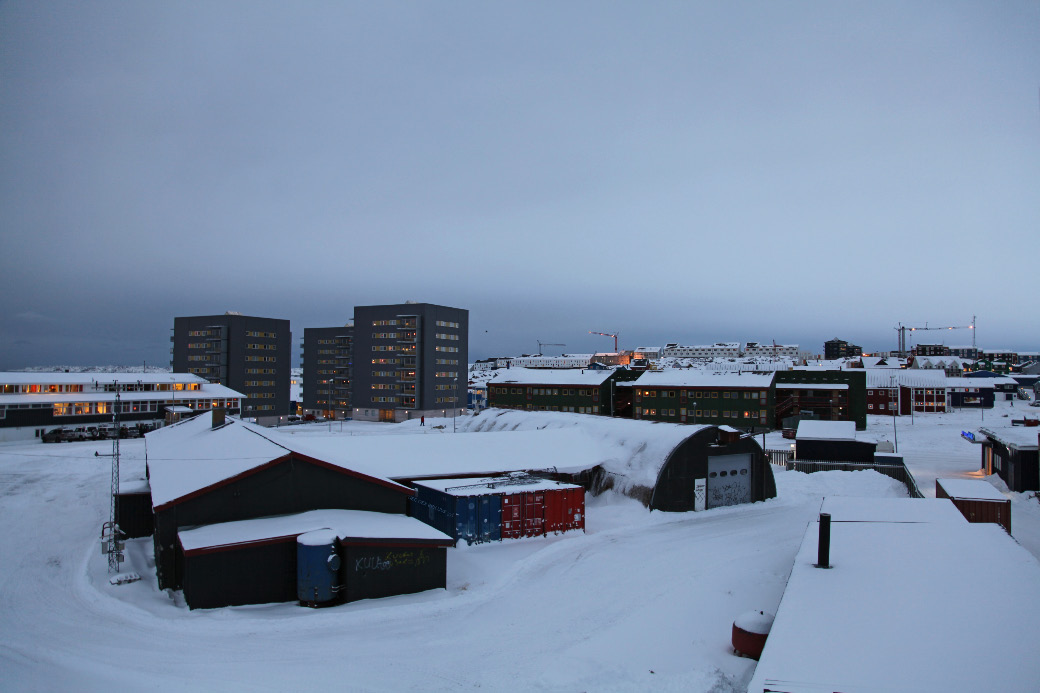 |
|
| |
Godthåb, a.k.a., Nuuk |
|
| |
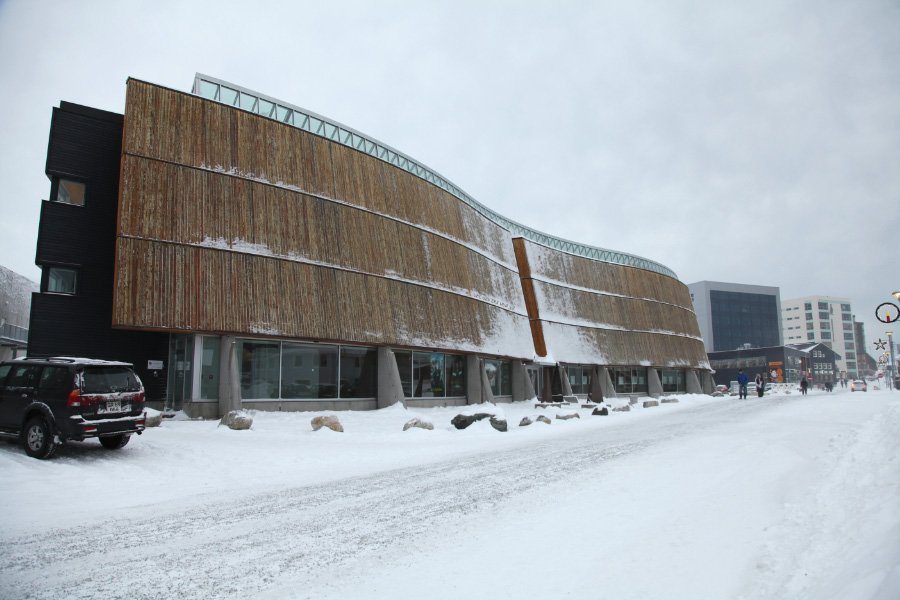 |
|
| |
— Katuaq - Greenland Cultural Centre — Designed by Danish architects Schmidt, Hammer & Lassen of Århus, this place
really is rather nifty inside and out. Among other amenities is a theater-concert hall featuring fine music, though
regrettably the pernicious poison Hollywood pans out figures prominently in the programming.
|
|
| |
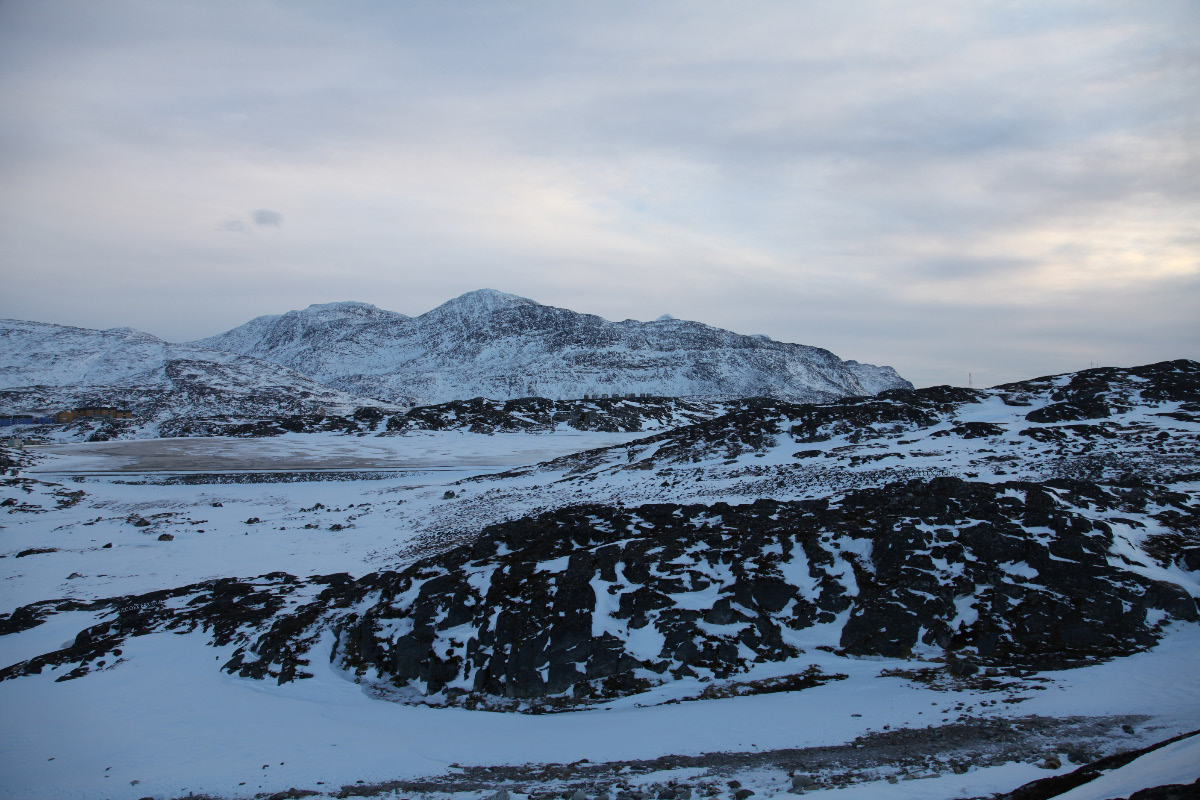 |
|
| |
|
|
|
|
|
| |
With a total population of about 56,000 in the entire country and a landmass of 2,166,086 km², Greenland is, and is by a wide margin, the least densely populated country in the world ... well after Antarctica that is. As with all other such places in the world, there is a good reason for this. And one can reflect for example that the "southernmost city in the world," Ushuaia in Argentina — very much a small city by 21st century notions of such things and surrounded by rocks and crags — has very nearly the same number of people spread out over its 23 km² as has Greenland with nearly 100,000 times that much land. As for the natural resources lying under the ice and rock of Greenland, the situation is quite different.
Though without any special admiration, the present writer also harbors no special animosity toward the 85 to 90 percent of the people of Greenland who are Inuit, (Kalaallit, Tunumiit and Inughuit) though integrity forces one to add promptly that (i) this figure includes people of mixed Inuit and European background including those who apparently have very little by way of Inuit admixture; (ii) the Greenlandic Inuits themselves are not the genetic descendants of earlier Arctic peoples, but rather they are the descendants of the so-called Thule Culture, settling in west Greenland from northernmost Canada only around 1300, that is about 300 years after the arrival of Descendants of European Christendom, to wit Icelanders and Norwegians led by the good Eiríkr hinn rauði – Eiríkr Þorvaldsson – Eric Thorvaldssonthe, the Red (* c. 950 - 1003 †); and (iii) essentially all of the arts and sciences of Greenland, the technology, the commerce, the amenities and prosperity of Greenland such as they are (GDP per capita similar to that found in Europe), effectively all of this is from and through European Christendom. Considering the foregoing, even the c. US$ 650,000,000 per annum block grant to fund the government of Greenland, its bloated public sector and transfer payments, all courtesy of the Danish taxpayer — note please one speaks here of an annual gift from European Christendom to the Inuit people of about $12,000 per person, year after year for decades! — but even such a sum must be understood as only part of the whole picture. And the gratitude of the Inuit to the Danish for all this amounts to? Well, nothing at all of course. The Greenlandic Inuit simply dream of Chinese mercenaries ( or will they be more Korean?: uk.uni.gl/about/cooperation/korea-corner.aspx ? ) stepping in to exploit the natural resources of this two million square kilometer piece of the patrimony of European Christendom — oil and uranium — with each of the 50,000 Inuit dividing up a share of the extracted wealth to make Chinese princelings and Kuwaiti oil-owner parasites envious. This is no way to promote Christian values or anything else good. Can such idiocy possibly be allowed to actually unfold? When such conditions are confronted only by European political correctness, so often at its most intense within suicidal Scandinavia, the answer regrettably is yes.
Of course the outcome will be very different if the people of European Christendom choose to bring United European Christendom into being while there is still time. With respect to Inuit Greenlanders, the reasonable and honorable course for all concerned is to simply regard these 50,000 people as citizens and members of European Christendom — sometimes it is an advantage to be small in number — sharing in a fair way, certainly not owning exclusively, the value of the resources of this territory of Denmark, not to exceed the level at which the average Dane likewise shares. This relationship has sadly and needlessly be complicated in very recent decades by a dying Danish culture transferring, through mass immigration and demographic replacement, to Africans, Arabs and Asians (each, all too frequently also Muslim), the work product of unnumbered generations of her ancestors over millennia. Lovely!
But imagine a very different future. Imagine the Orthodox-Catholic Church becoming the reality of the Church Militant, supplanting the heresy and utter nonsense of 21st century Lutheranism throughout northernmost European Christendom, including Greenland. And the Greenlandic Inuit and other Arctic peoples, not as pathetic parasites on an European Christendom dying and drawing down its resources for reasons unrelated, but rather the very opposite. Dare we imagine a renaissance, a rebirth of vitality within the Nordic countries European Christendom, then spreading still further afield, actually being led by Arctic peoples, when once evangelized and catechised with Orthodoxy? Why not dream? Why not crush that only vile form of racism within our own hearts and instead imagine that this can actually come from any of God's people. And one single Inuk can be made the conduit of Christ's Grace to lead this, can be extended and can accept that most precious of invitations.
Imagine the Dane, whose great, great, great grandmother had been a real Christian, now in search of wisdom and holiness, making his way in 2115 Anno Domini to the Inuk starets in that Nordic monastery, maybe in Greenland, built up to the Glory of God by thousands of faithful Inuit Orthodox-Catholic Christians, a Greenlandic Holy Trinity Monastery, an Inuit brother saint of Sergius of Radonezh. And imagine that Inuit brother saint of Saint Patrick returning to Denmark to spread the only true faith to those Descendants of European Christendom whose ancestors so very culpably forfeited their own holy spiritual patrimony. |
|
| |
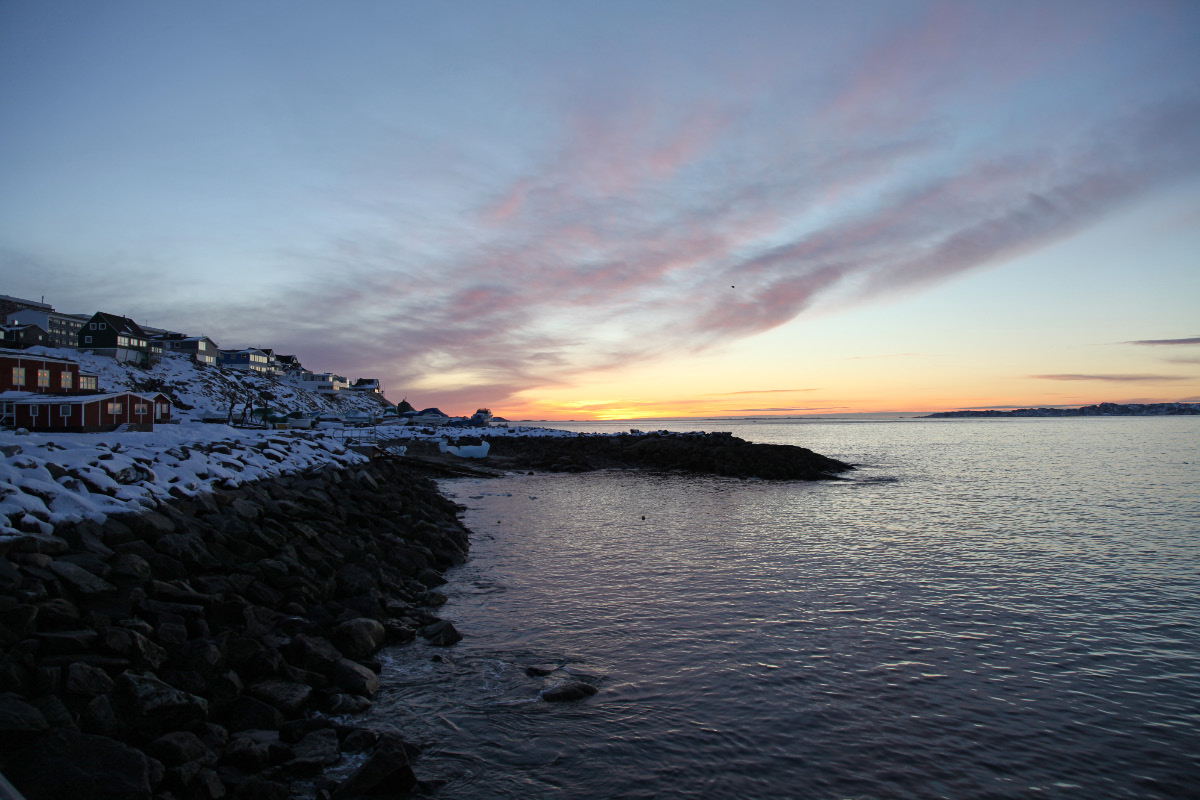 |
|
| |
Godthåb sunset |
|
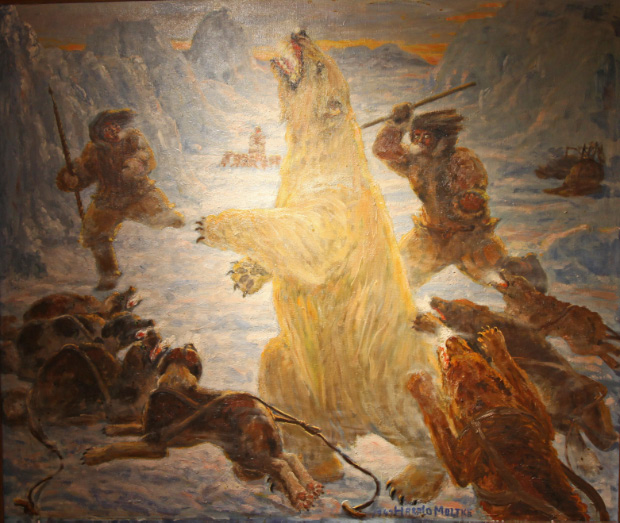 |
|
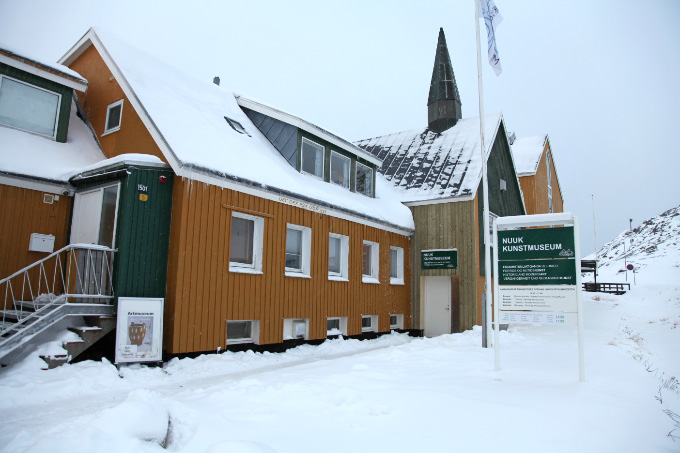
|
Who will argue that polar bears get a good deal from Arctic peoples, or from
any of us? Of course they do not regularly dish out good deals to baby seals.
By the leading arctic painter, the Dane Harald Viggo Moltke |
|
Nuuk Kunstmuseum
|
| |
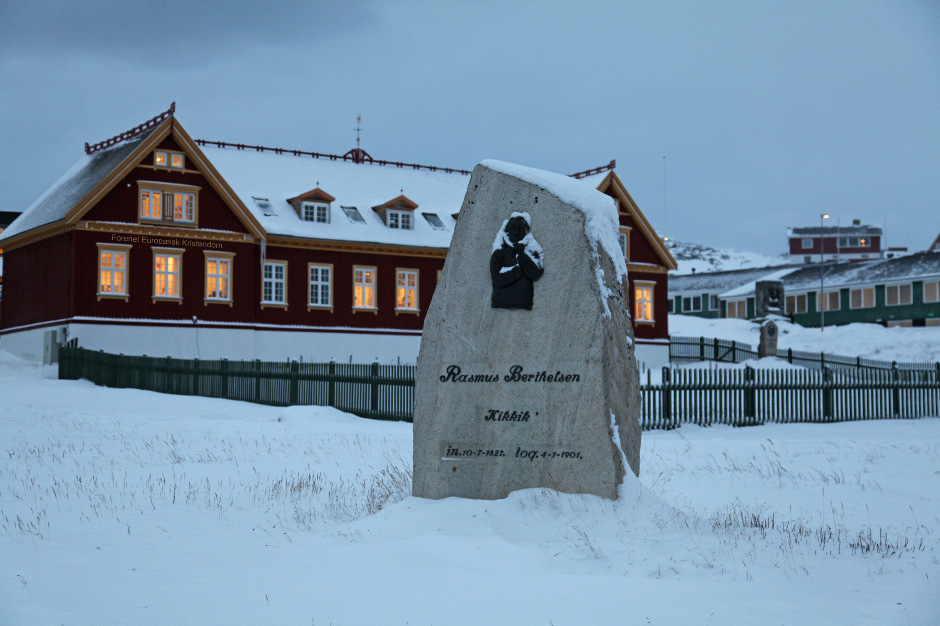 |
|
| |
Rasmus Berthelsen |
|
| |
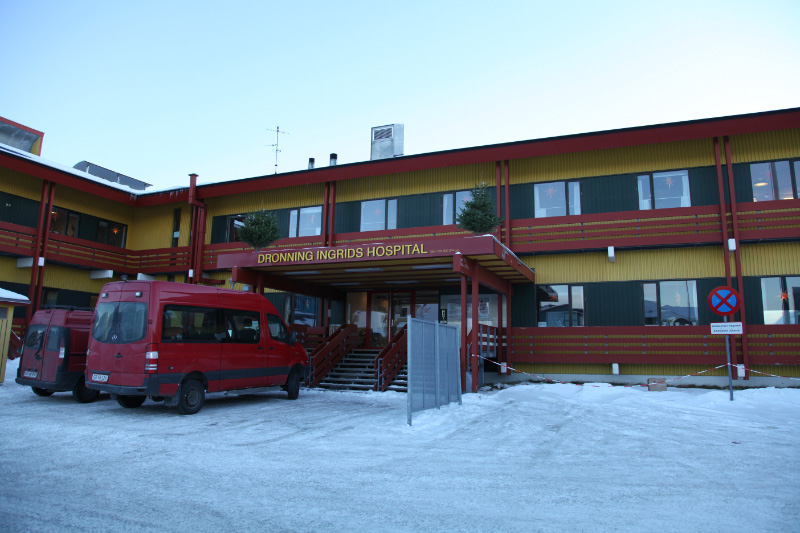 |
|
| |
There are seventeen hospitals and medical centers in Greenland.
One hears that all of the phyicians are Danish, save one Inuit. |
|
| |
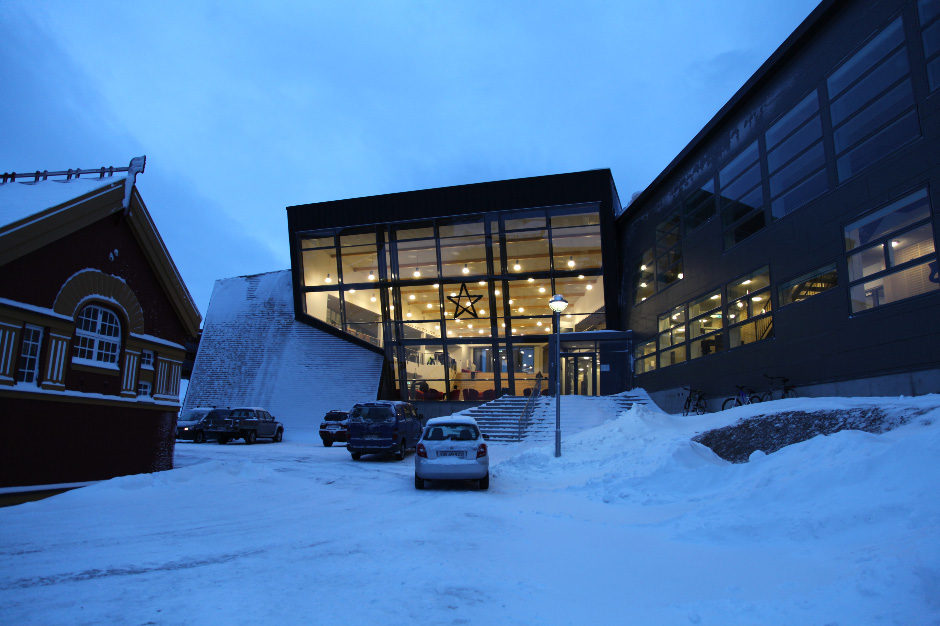 |
|
| |
Ilisimatusarfik – Grønlands Universitet – University of Greenland |
|
| |
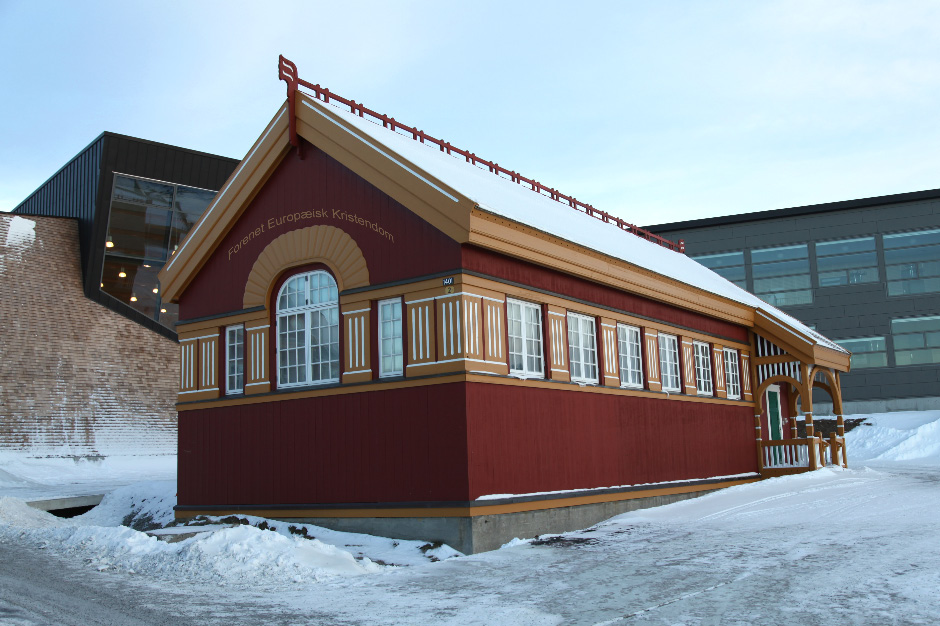 |
|
| |
Vikings at the University |
|
| All the many Arctic peoples of European Christendom include the Yupik, Siberian Yupik, Iñupiat, Inuvialuit, Nunavut, Nunavik, Nunatsiavut; and of the Russian Extreme North – Крайний Север, the Aleuts, Alyutors, Chelkans, Chukchis, Chulyms, Chuvans, Dolgans, Evenks, Evens, Itelmens, Kamchadals, Kereks, Kets, Khanty, Koryaks, Kumandins, Mansi, Nanai, Negidals, Nenets, Yamal-Nenets, Nganasans, Nivkhs, Orok (Ulta), Oroch, Sami, Selkups, Shors, Soyots, Taz, Telengits, Teleuts, Tofalars or Tofa, Tubalars, Tozhu (Tuvans), Udege, Ulchs, Veps, Yenets, and Yukaghirs. |
|
|
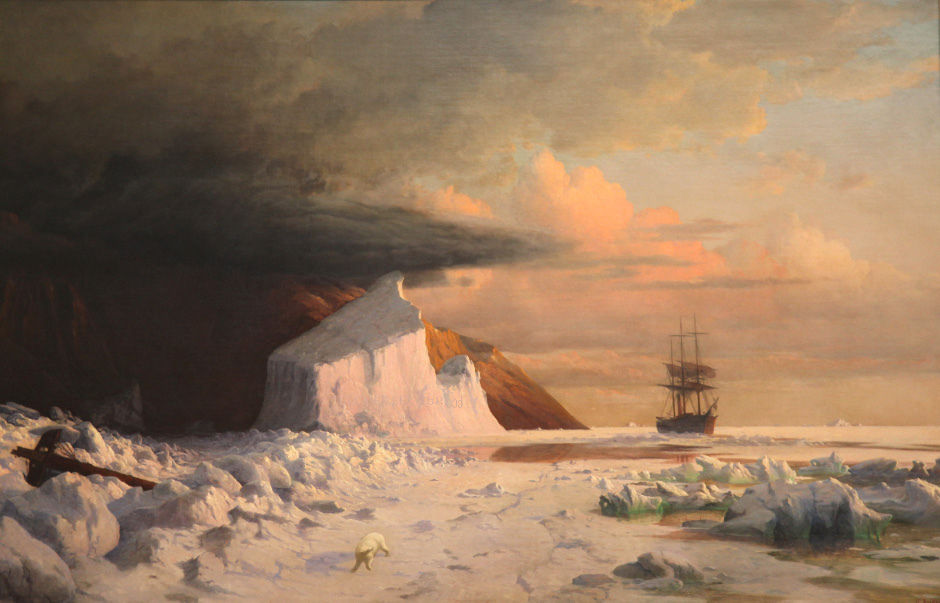 |
| |
|
|
An Arctic Summer: Boring through the Pack in Melville Bay (1871), William Bradford in Metropolitan Museum of Art |
| |
|
|
|
Grønland - Kalaallit Nunaat- Forenet Europæiske Kristenheden |
| |
|
|
|
Greenland - United European Christendom |
|